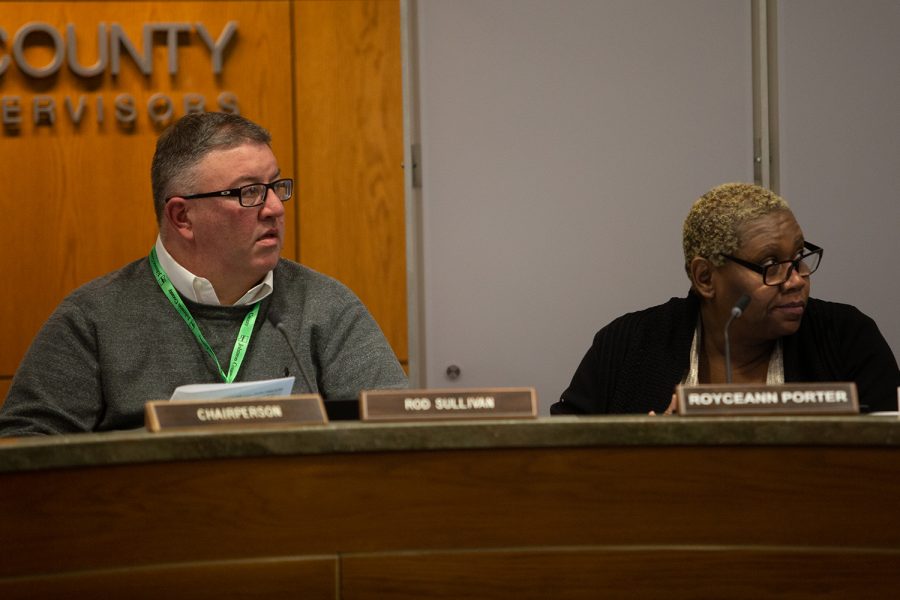Johnson County declares spread of COVID-19 a public health emergency
The state of public health emergency will remain in effect as long as the state of Iowa’s state of emergency remains in effect.
Johnson County Supervisors Rod Sullivan and Royceeann Porter listen to a presentation during a meeting on Thursday, Feb. 12, 2020.
March 18, 2020
The Johnson County Board of Supervisors and Johnson County Emergency Management Commission declared the spread of coronavirus in the county a “public health disaster and state of disaster emergency,” as well as a civil emergency, at a meeting today.
Supervisors voted unanimously to pass the declaration, and amended the date of the public health disaster emergency’s retroactive beginning to March 8.
There are currently 29 positive cases of COVID-19 in Iowa, 18 of which are in Johnson County.
Gov. Kim Reynolds issued a state of public health disaster emergency for the state of Iowa Tuesday. According to the declaration, the state of emergency will remain in effect as long as the statewide emergency is in place. The Board of Supervisors and Emergency Management Commission will be able to extend the declaration if needed.
According to the declaration, the state of emergency will “enable the deployment of emergency funds and any needed available resources, invoke mutual aid agreements, receive assistance, monetary or otherwise, from other agencies and levels of government, and make application to the State of Iowa’s individual assistance program, as well as exercising any other local powers or mutual aid to include IMAC and EMAC agreements as may be needed to protect life and critical infrastructure…”
Johnson County and its municipal entities are also authorized to protect people of the county through the powers granted by an emergency declaration, and seek reimbursement from federal and state grants for emergency assistance.
As The Daily Iowan previously reported, all Johnson County buildings except the county courthouse closed their doors Tuesday and will not open them again until March 31. Employees will work remotely on county business, and many resources are available online, by phone, or email or mail. The closures are also in line with Reynold’s declaration of a public health disaster emergency, which called for the closure of bars, theaters, and other areas of mass gathering.



